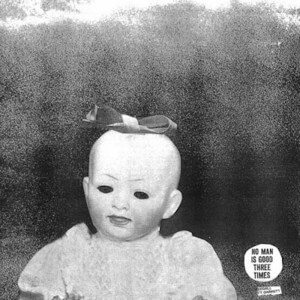Ty Segall – ‘Emotional Mugger’
 California eccentric and reigning garage rock demi-god Ty Segall returns to a heavier sound on his eighth solo record in as many years.
California eccentric and reigning garage rock demi-god Ty Segall returns to a heavier sound on his eighth solo record in as many years.
One of the most prominent figures in the garage rock scene, Ty Segall is known for the consistent quality of his discography, as well as its sheer breadth. To state that Segall has his finger in many pies would be an understatement: in addition to his solo work, he’s currently a member of at least three bands (likely more), and has also seen fit to release collaborative LPs with Mikal Cronin and White Fence in the past few years, while dabbling in production work on the side. Despite his prolificacy, Segall failed to release a solo album in 2015, the first year this has happened since his debut in 2008.
His last effort, 2014’s Manipulator, was his most ambitious work to date, complementing his standard garage rock fare with psychedelic, folk, and glam elements. The latter of these influences was most interestingly utilised; acoustic guitars duelled alongside electrics, and Segall’s adoption of a Bowie-esque vocal style made for some of his best work to date. On Emotional Mugger, Segall abandons much of what made Manipulator great and instead comes up with something more in line with his earlier work. But Segall being Segall, there’s enough that’s new here to make for a compelling listen. Above all else, this album is heavy. In this respect, it has more in common with last year’s Fuzz album, II (another Segall side-project). But where that LP was relatively straightforward hard rock, Emotional Mugger is much weirder, and has more to offer.
Segall’s vocal panache reassures the listener that his tongue is firmly in his cheek
‘Californian Hills’ is one of the best tracks on the album, perhaps because it is the most reminiscent of his work on Manipulator, with its more melodic vocal performance. Lyrically, it’s one of the most memorable tracks too; while it does indulge in heavy metal cliché (“Sound the Dionysus bell / Send them all straight to hell”), Segall’s vocal panache reassures the listener that his tongue is firmly in his cheek. The track also benefits from frequent tempo shifts, with a frenetic but brief guitar spasm re-occurring multiple times throughout. ‘Emotional Mugger/Leopard Priestess’ is a further highlight with its infectious staccato guitar stabs and dynamic vocals. Segall switches up his delivery all over the track, at one point assuming a husky drawl: “And you’re my queen now, on fi-yuh / And it’s the king here, for hi-yuh.” It’s a brilliant, silly, earworm of a track.
‘Diversion’ stands out as the heaviest thing Segall has ever put to tape, and it’s among the catchiest too. Seemingly intended to be played obnoxiously loud, the dense fuzz of the guitars and bass merge into a forceful and ear-pummelling wall of sound. But any notion that Segall’s music is therefore inaccessible is belied by the simple singalong lyrics: “Used to say I loved you! / Yeah! Yeah! Yeah!”. As ever, Segall effortlessly blends a certain pop-appeal with the noisy and experimental. Talking of experimental, ‘W.U.O.T.W.S.’ gains the distinct honour of being the strangest song Segall has yet released, hands down. For the duration of the track, brief snippets of what sound like the vocal tracks from the other songs on the LP drift through the left channel, disappearing as soon as they become recognisable. Meanwhile in the right channel, a host of atonal bleeps and bloops are thrown into the mix. You’re left with the effect of an analogue radio tuning back and forth between a bunch of odd radio stations every few seconds. I wasn’t on board with this Velvet Underground-like experimentation at first, but I must admit it grew on me significantly.
As ever, Segall effortlessly blends a certain pop-appeal with the noisy and experimental
Granted, Emotional Mugger isn’t flawless. ‘Magazine’ feels a little inconsequential for a closing track, suggesting the sequencing is a little off. The album also doesn’t quite reach the melodic peaks of Manipulator, but is more consistent in quality due to its leaner running time. Overall, Emotional Mugger, while somewhat harkening back to an earlier sound, does enough that is new to continue Segall’s habit of making each album dramatically different from the last. Notably, Segall incorporates a wealth of strange little vocal and sonic flourishes into many of the tracks, managing to keep songs fresh and dynamic where they might otherwise run out of steam. The highlights are amongst his best songs, and the album as a whole is an easy one to stick on and enjoy without thinking too much.

Comments